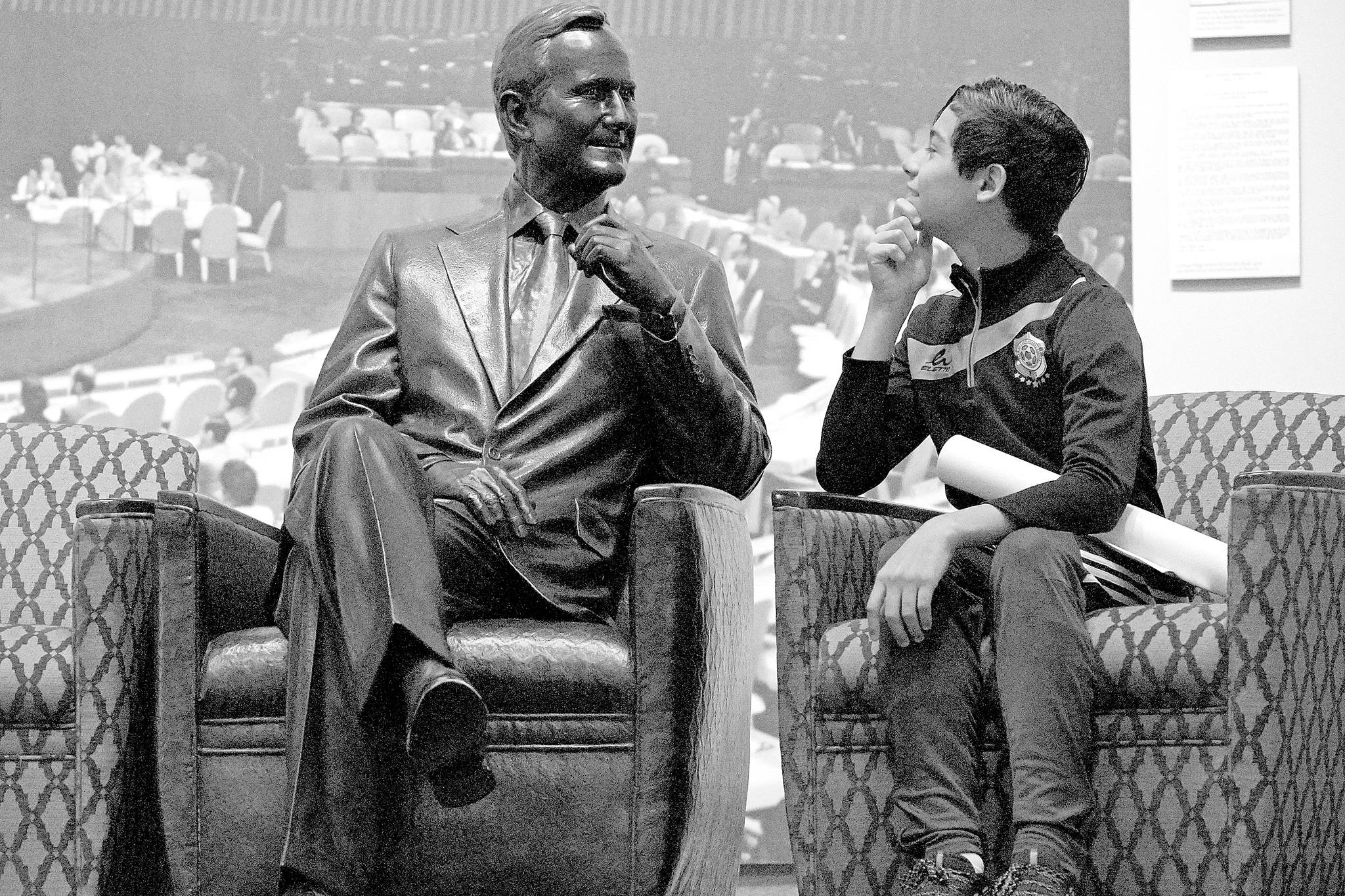When George Herbert Walker Bush passed away on the last day of November, many other things were occupying Alaskans’ attention: a very large and destructive earthquake in Anchorage, a recount of a tied State House race resulting in a single-ballot margin of victory, and a change in gubernatorial administrations, all set against the background of the regular elements of our daily lives. It has taken a few days to think about and process what America’s 41st president meant from an individual perspective and also to contemplate his importance in our nation’s history. There are some wonderful lessons to be learned from the way he lived his life which can inform and inspire us moving into the future.
I was finishing eighth grade at Palmer Junior High School when I became aware that Bush was seeking the presidency in 1980, and I had enrolled as a freshman at Palmer High School by the time the election took place in November of that year. Throughout that summer, I grew more interested in a political contest than I had heretofore been in my life, and that interest was based in the realization that Bush was incredibly qualified and seemed like exactly the right person to be President. I wasn’t analyzing the race or the country’s needs, in the same way I would do so today, but simply as a 13-year-old trying to embrace our national political system as well as I could.
My late father, Dr. George Brown, was strongly devoted to the incumbent, President Jimmy Carter. My dad’s support for Carter came from a place of humble earnestness, a desire for social justice, a commitment to individual dignity, and the belief that redistributing some amount of wealth from the richer to the poorer was necessary to make the world function fairly. He was especially unhappy with the vision that Ronald Reagan offered for the country’s future, but we didn’t really take the time to talk about Bush as it became clear that Reagan would be the Republican nominee.
Looking at the very impressive résumé Bush brought to his candidacy, from U.S. Senate candidate to U.S. Representative to United Nations Ambassador to CIA Director, showed the tremendous qualifications he presented. As many have observed since his death, Bush was likely the most experientially qualified person ever to hold the highest office in our land.
With the past week’s ceremonies celebrating the life and service of our 41st president, things have become clearer. George Herbert Walker Bush truly understood the concept of statesmanship, and with it the need to see one’s political opponents as just that, challengers in time-limited contests, at the end of which one must leave the competition for election behind and turn to working cooperatively on the process of governing. The idea of a loyal opposition and bipartisan co-operation were integral to some of the greatest successes of the first Bush presidency, from the enactment of the Americans with Disabilities Act (ADA) to the successful liberation of Kuwait from its Iraqi occupiers during the First Gulf War. In the absence of this statesmanlike leadership it becomes all the more difficult to hope that the urgent and critical needs facing our nation and world today can possibly be addressed and resolved for the benefit of all.
The funeral at Washington National Cathedral on Wednesday was an awesome celebration of the life of Bush. In the words of former Wyoming Sen. Alan Simpson, the first President Bush, “never hated anyone” which really touches the heart. Other speakers praised Bush’s greatest policy accomplishments, from the North American Free Trade Agreement (NAFTA) to the ADA, and his willingness to compromise to get things done.
Some seemed surprised that George Walker Bush, the nation’s 43rd president, cried while speaking about his father, but having spoken at the Celebration of Life for my late father in January of 2017, I think I know where he was coming from. It is very hard publicly to say goodbye to a beloved parent, and one’s sadness can’t be contained. Knowing that the person to whom you bid farewell made the world a better place helps to ease the otherwise insurmountable pain.
• Benjamin Brown is a lifelong Alaskan, and an attorney, who lives in Juneau. My Turns and Letters to the Editor represent the view of the author, not the view of the Juneau Empire.

